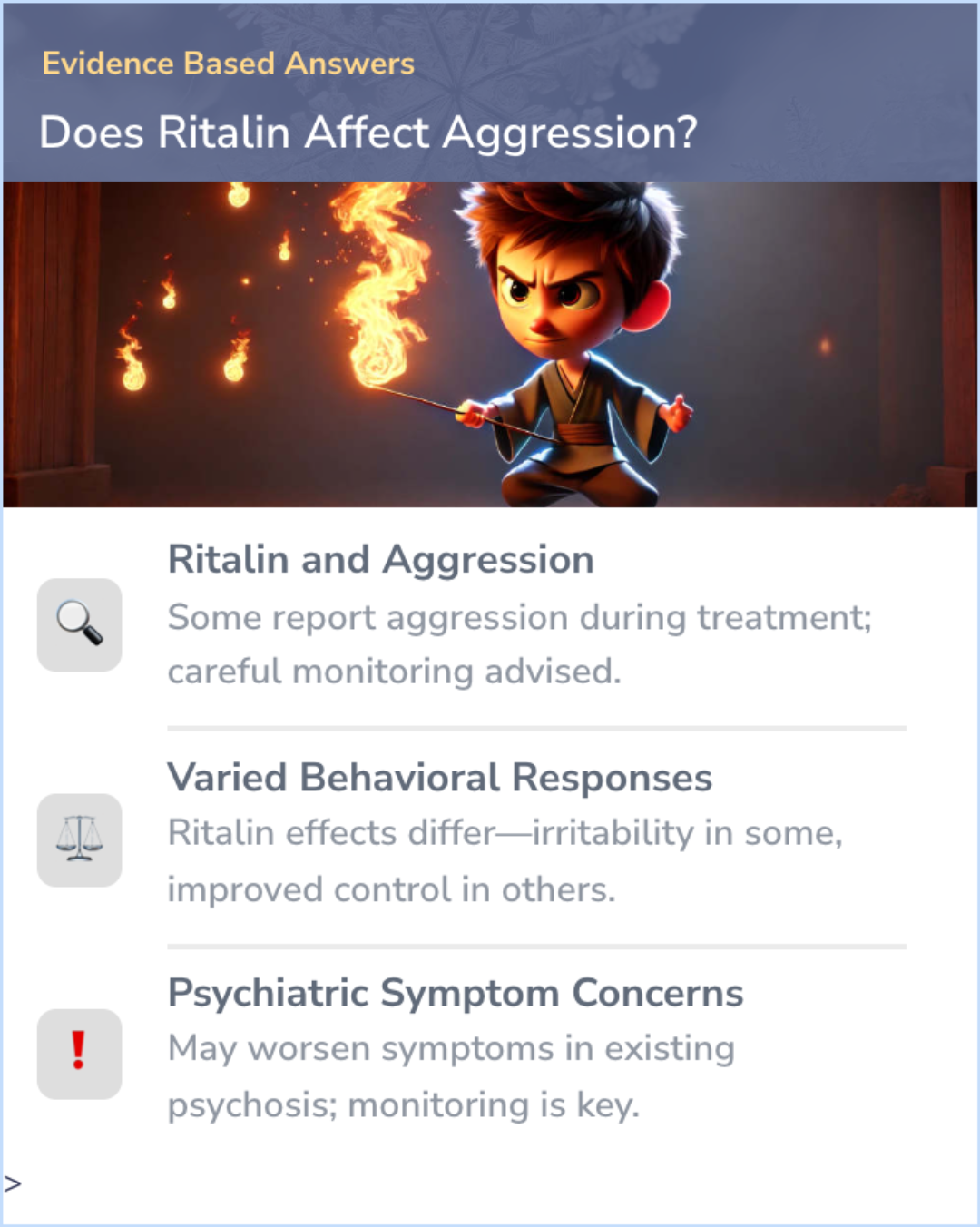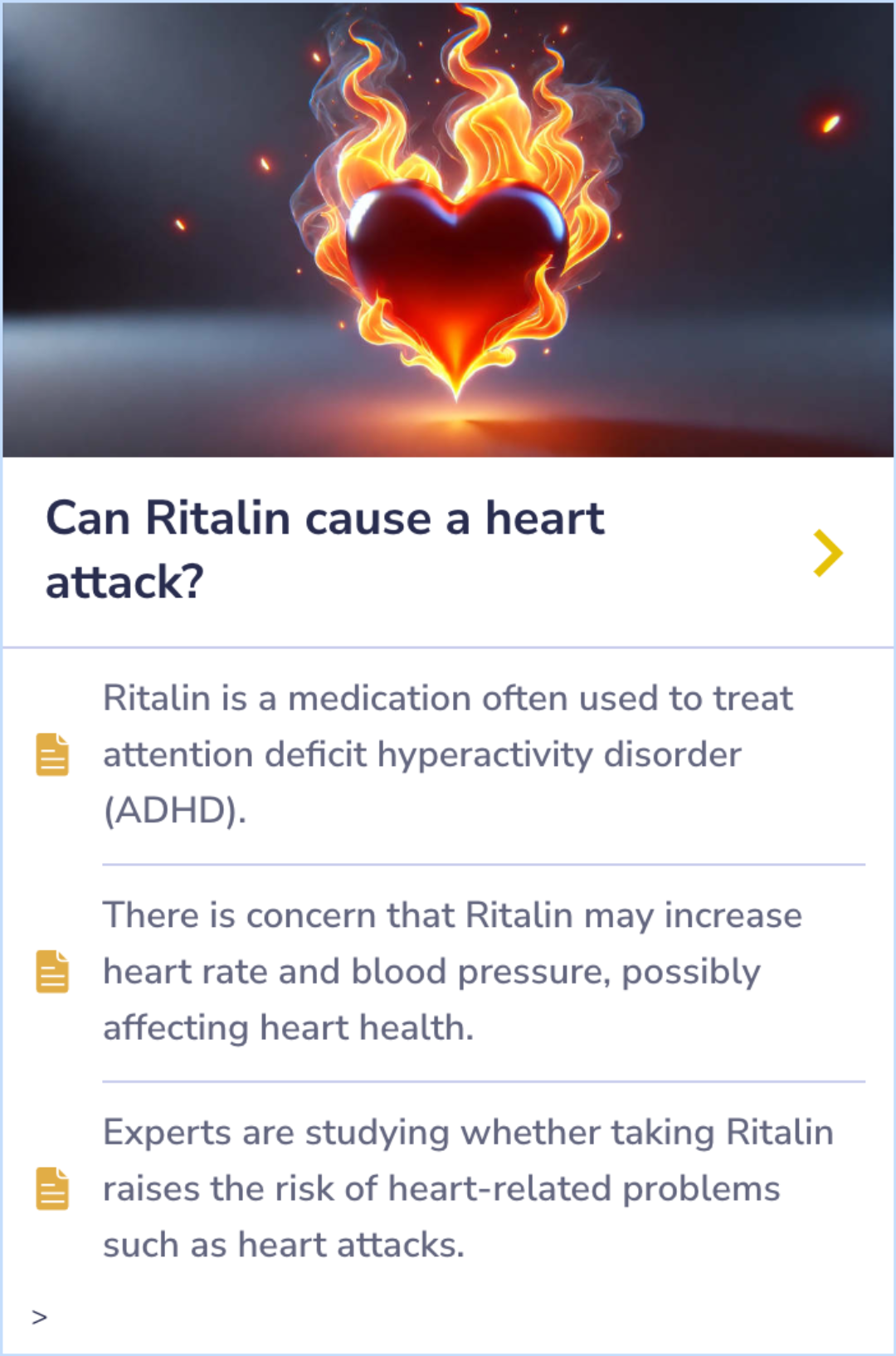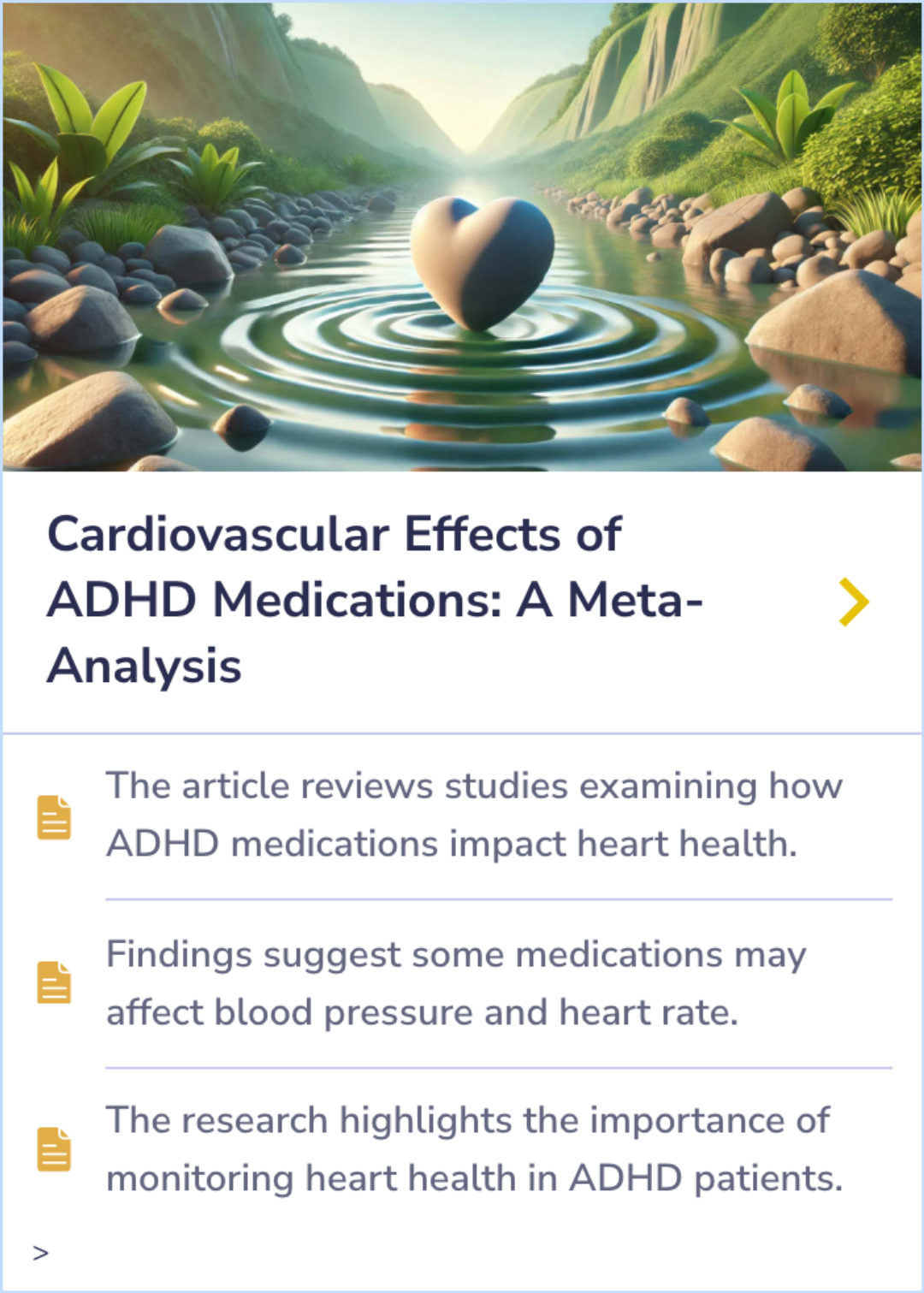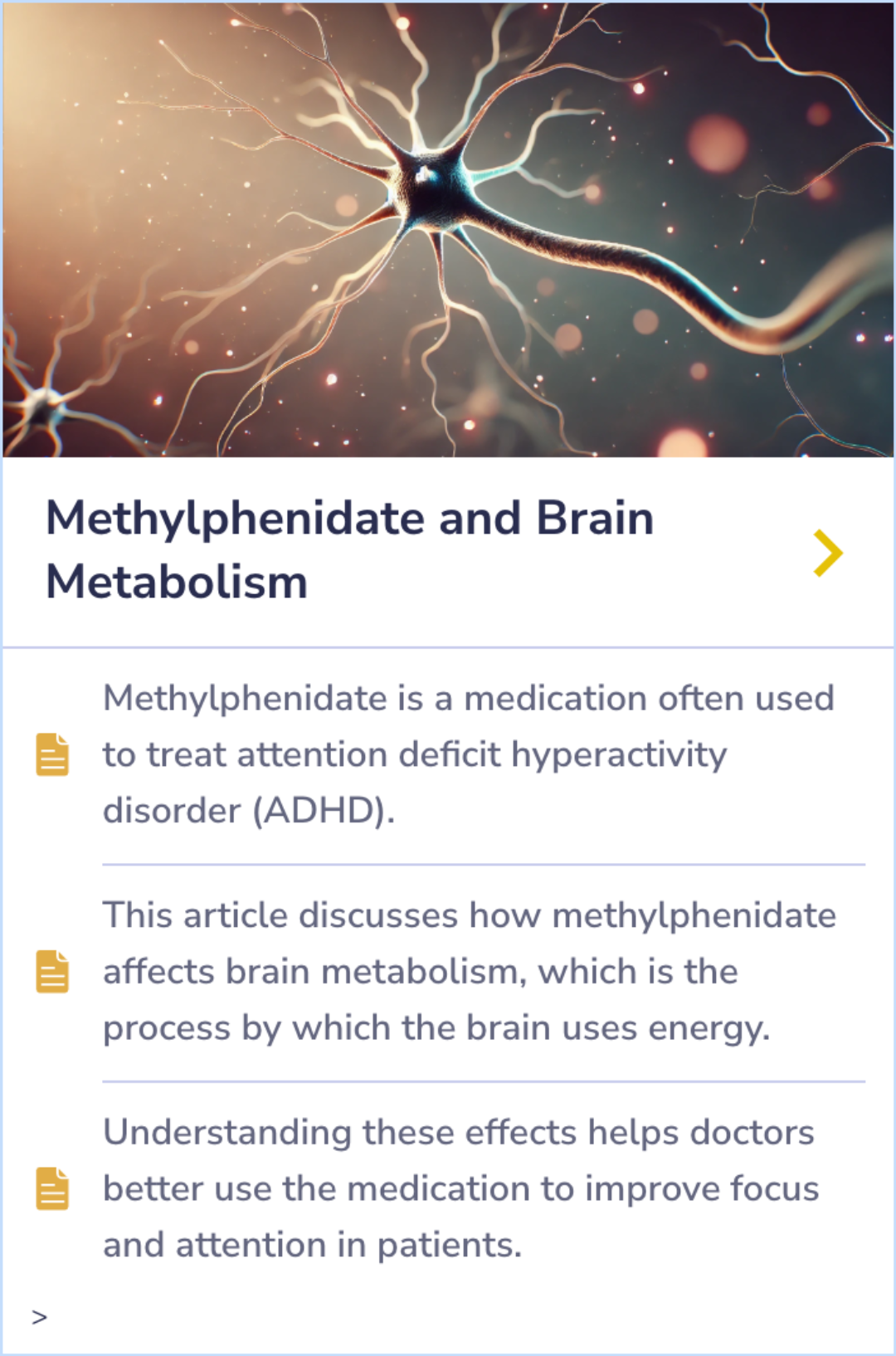Ritalin
Evidence Based Answers
Can Ritalin cause anger issues?
Ritalin's link to aggression is observed in some cases, though definitive evidence is unclear. Effects vary widely, causing mood shifts like irritability in some users and improving emotional control in others. Close monitoring is essential for detecting psychiatric symptoms during treatment.
Click to explore a section:

Ritalin may cause aggression and mood changes; effects are diverse, warranting close monitoring.
Does Ritalin Cause Aggression or Hostility?
The link between Ritalin (methylphenidate) and behaviors like aggression or hostility has been examined in clinical studies. While no definitive evidence shows Ritalin causes aggression, some patients have reported such behaviors during treatment. Monitoring for changes in aggression is advised, especially when starting or changing dosage.
Given that ADHD often involves behavioral challenges, it can be hard to tell if observed aggression is from the condition, the medication, or other factors.
Given that ADHD often involves behavioral challenges, it can be hard to tell if observed aggression is from the condition, the medication, or other factors.
“
Source Quotes:
Aggressive behavior or hostility is often observed in children and adolescents with ADHD, and has been reported in clinical trials and the postmarketing experience of some medications indicated for the treatment of ADHD.,Although there is no systematic evidence that stimulants cause aggressive behavior or hostility, patients beginning treatment for ADHD should be monitored for the appearance of or worsening of aggressive behavior or hostility.
Behavioral Effects of Methylphenidate
Ritalin, like other stimulant medications, can have different effects on behavior depending on the individual. Some may experience mood swings, irritability, or agitation when treatment starts or at peak doses, while others see improved emotional control and behavior. Factors like dose, individual reactions, and other conditions can influence these outcomes.
Behavioral changes should be watched for, especially if mood shifts are significant.
Behavioral changes should be watched for, especially if mood shifts are significant.
“
Source Quotes:
Patients are more prone to become easily agitated, irritable, or depressed and go through mood swings/lability.
Some individuals are sensitive to methylphenidate and suffer side effects at low doses, which in addition to anorexia and insomnia often include a short period of dysphoria and stereotypic behaviors when the serum concentrations are at peak levels.
Psychiatric Symptoms During Ritalin Treatment
In certain cases, Ritalin may worsen psychiatric symptoms, particularly in people with existing conditions like psychosis or severe agitation. Symptoms such as thought disturbances or new episodes of psychosis or mania can appear, requiring careful monitoring during use.
If symptoms become severe, stopping the medication should be considered.
If symptoms become severe, stopping the medication should be considered.
“
Source Quotes:
Administration of stimulants may exacerbate symptoms of behavior disturbance and thought disorder in patients with a preexisting psychotic disorder.
Clinicians should screen for symptoms of depression, agitation, aggressiveness, new-onset or pre-existing psychosis or mania, and suicidality as these can be worsened when initially starting methylphenidate.
Positive Behavioral Changes with Methylphenidate
Ritalin can help some patients by improving emotional control and reducing anger. Studies have shown its effectiveness in managing hyperactivity and related symptoms, potentially stabilizing behavior in certain individuals. Careful consideration of dosing and individual differences is important to maximize these benefits.
This highlights the varied ways methylphenidate can affect behavior.
This highlights the varied ways methylphenidate can affect behavior.
“
Source Quotes:
Mooney and Haas (1993), in a randomized, placebo-controlled study of 38 subjects with severe brain injury, administered 30 mg/kg methylphenidate and considered its use in TBI for the treatment of anger reduction.
A meta-analysis of data from 21 placebo-controlled RCTs, MPH was also found to alleviate the ADHD-related emotion regulation deficits, as experienced by adult individuals (SMD, 0.34; 95% CI, 0.23-0.45).
Key Takeaways
Conclusions
Ritalin (methylphenidate) presents varied impacts on aggression and mood swings, emerging differently across individuals. Clinical studies suggest that while definitive links to aggression are lacking, certain users report such effects, emphasizing the need for vigilant monitoring, especially when dosage changes occur.
Stimulant medications like Ritalin can trigger psychiatric symptoms in those with pre-existing conditions, necessitating careful supervision. Conversely, many patients experience positive behavioral changes, highlighting the varied reactions to treatment.
Stimulant medications like Ritalin can trigger psychiatric symptoms in those with pre-existing conditions, necessitating careful supervision. Conversely, many patients experience positive behavioral changes, highlighting the varied reactions to treatment.

Evidence Summary
Ritalin and Potential Heart Risks
Ritalin, commonly prescribed for ADHD, may affect heart rate and blood pressure, raising concerns about its impact on heart health. Research is ongoing to explore whether these changes could increase the risk of heart-related issues like heart attacks. Studies continue to investigate these possible connections and the broader effects of Ritalin on cardiovascular health.
Experts are closely examining how Ritalin may influence heart function, considering its effects on circulation and the heart's workload.
Experts are closely examining how Ritalin may influence heart function, considering its effects on circulation and the heart's workload.
Evidence Summary
How ADHD Medications Affect Heart Health
ADHD medications can impact heart health, with research showing changes in blood pressure and heart rate in some cases. These medications may elevate or lower these measures, depending on factors like dosage and individual response.
Research emphasizes the need for regular cardiovascular monitoring in ADHD patients, as these adjustments can help manage any potential risks tied to medication use.
Research emphasizes the need for regular cardiovascular monitoring in ADHD patients, as these adjustments can help manage any potential risks tied to medication use.
Evidence Summary
Harnessing Brain Energy for Better Focus
Methylphenidate, widely known for treating ADHD, plays a vital role in how our brains use energy. It directly influences the brain's metabolism, which is essential for maintaining focus and attention. By optimizing how this medication works, healthcare providers can enhance its effectiveness in patients.
This information sheds light on how the medication can help manage ADHD symptoms by providing a clearer picture of its impact on brain energy usage, making treatment more tailored and effective.
This information sheds light on how the medication can help manage ADHD symptoms by providing a clearer picture of its impact on brain energy usage, making treatment more tailored and effective.


